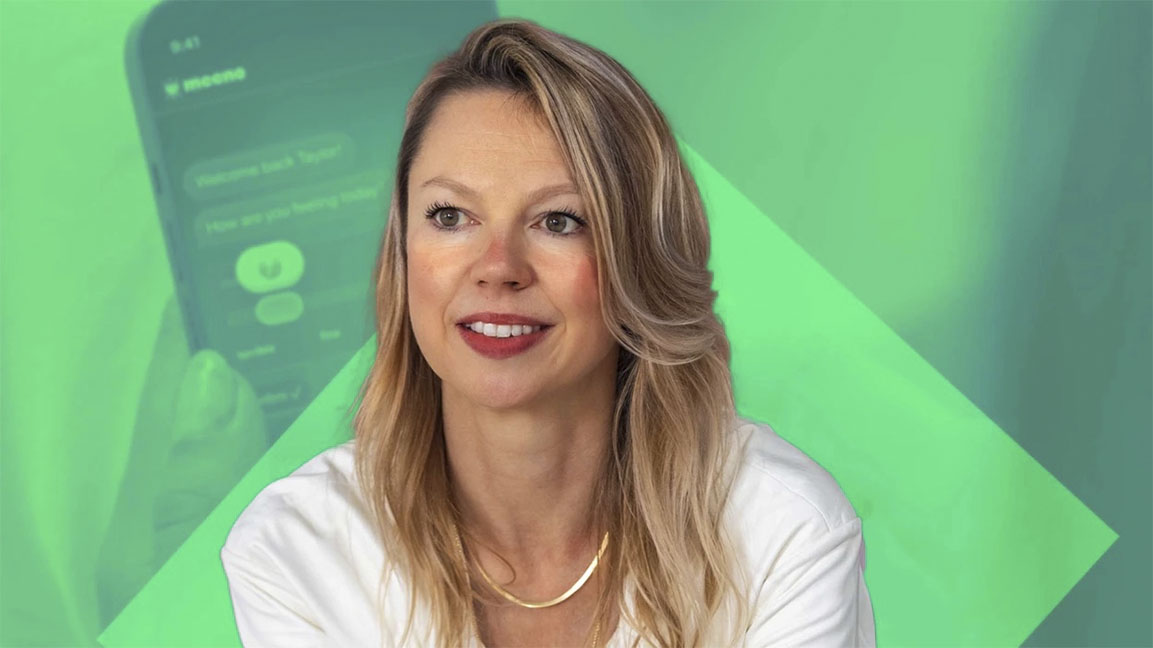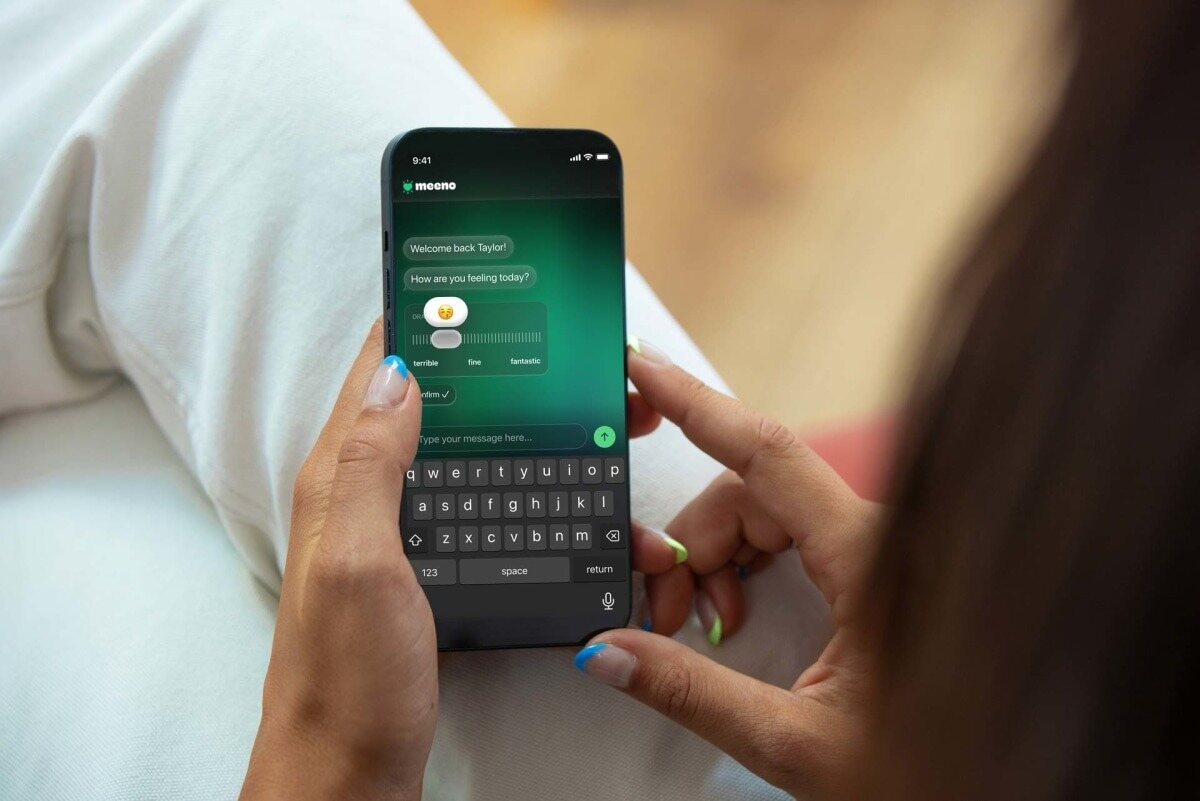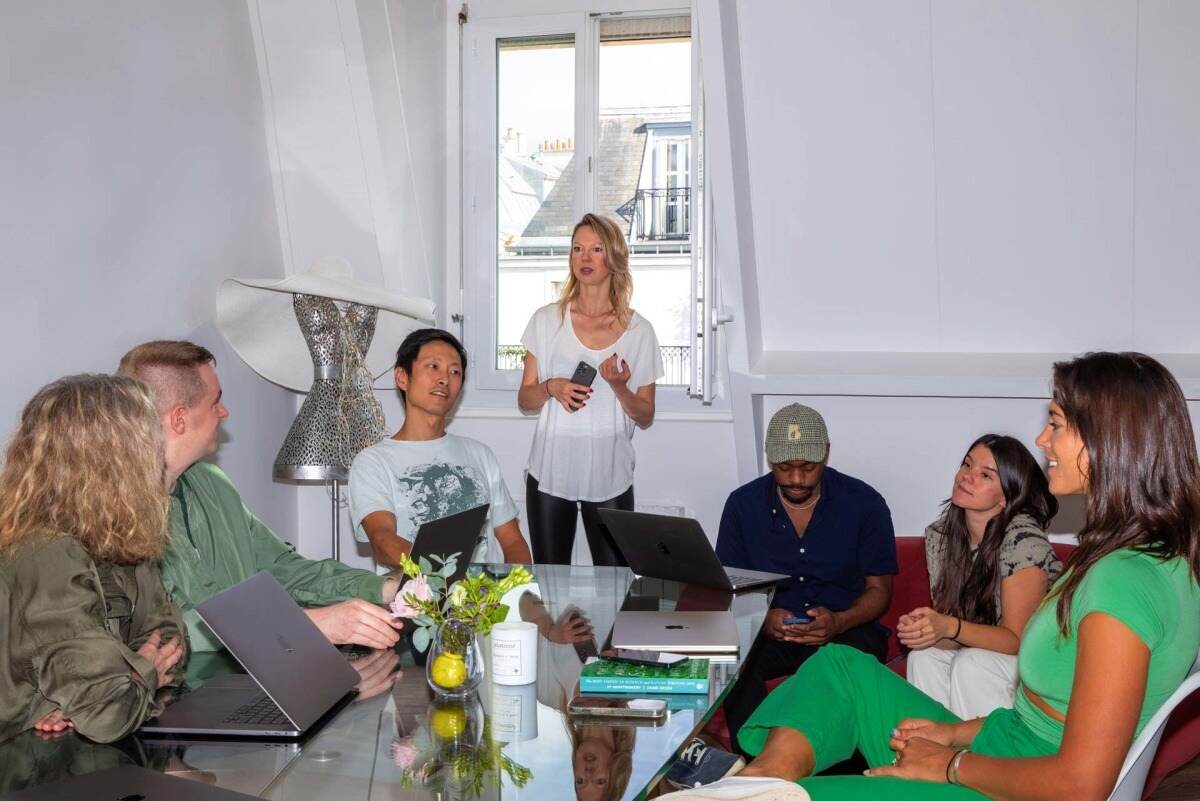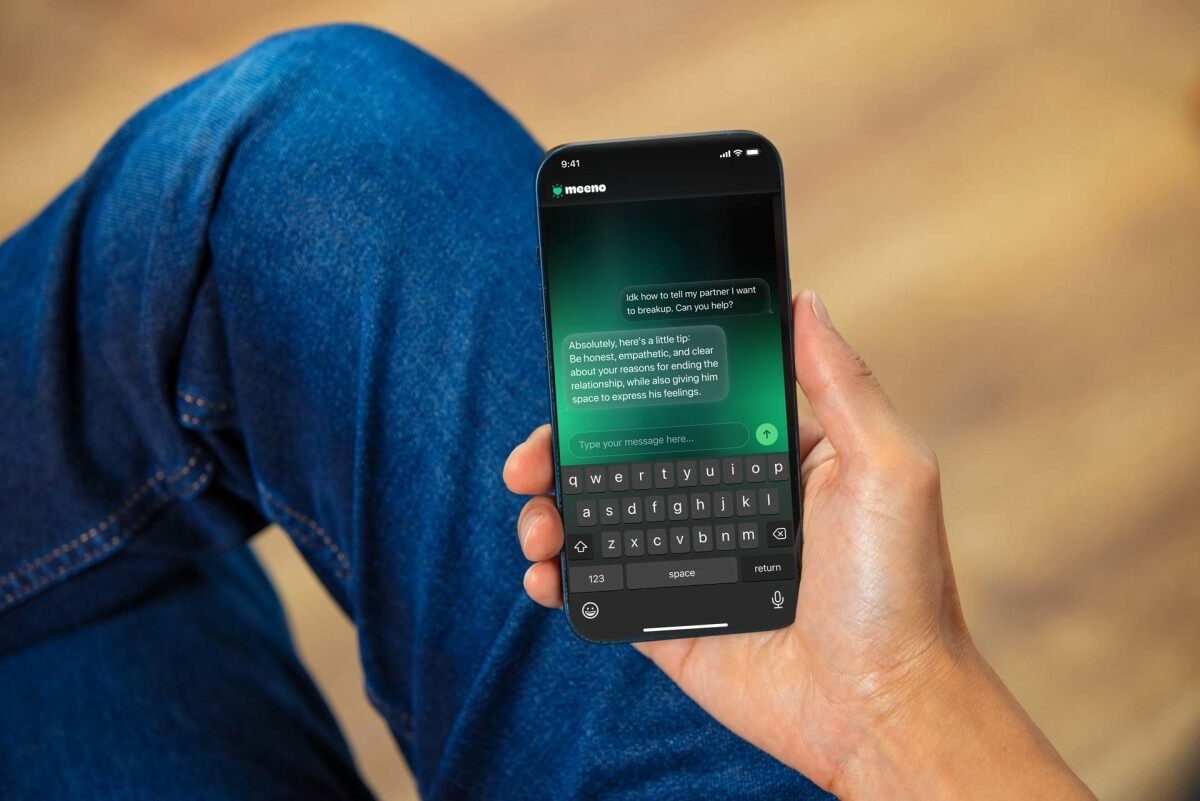- | 8:53 am
Ex-Tinder CEO Renate Nyborg is back with a new app that helps you have hard conversations
Meeno uses artificial intelligence to help users build stronger romantic and platonic relationships.

Renate Nyborg has been trying to solve relationship problems since she was three years old.
Growing up across Norway and the Netherlands, her father would speak to Nyborg and her brother in his native Norwegian, while her mother would speak to the children in Dutch. The language immersion was great for the children, but Nyborg recalls that, at times, her life felt a bit like living in the Tower of Babel.
“They were constantly getting into small arguments for misunderstanding each other, and I was apparently interrupting them constantly to try and say, ‘No, no, you’ve misunderstood her. This is what she really means,’” Nyborg, now 37, tells me. Straddling different cultures and often moving around, Nyborg became obsessed with communication and relationship science. It’s an interest that’s only intensified in recent years.
When she was in her teens, she started playing around with mobile technology. The two areas—connection and personal tech—have consistently played a role in her career. After working at Apple and Headspace, Nyborg spent about two years at Tinder, first as general manager of Europe, Middle East, and Africa and then as CEO. Nyborg left Tinder in August 2022 shortly after Match Group CEO Bernard Kim took over and implemented a number of management changes.
All of this has culminated into Nyborg’s latest venture: Meeno, an artificial intelligence-powered relationship mentoring app that’s operating in closed beta and available for pre-order in the Apple App Store. Expected to launch in the coming months, it essentially serves as part friend, part coach—the company strictly refers to the chatbot as a “personal mentor.”

[Photo: Meeno]
The best way to describe it, Nyborg says, is by imagining Remy, the rat from the Disney film Ratatouille who sits atop a clumsy man’s head and orchestrates his movements (by tugging the man’s hair) to help him become a world-class chef. In Nyborg’s telling, Meeno is Remy, and the guidance isn’t around making a soup, but figuring out how to navigate tough interpersonal relationships.
Say you want to leave a partner. You would open up the chatbot and type in, “I want to break up with my boyfriend but I don’t know how.” Meeno will respond with a tip along the lines of being honest, empathetic, and clear.
The app’s design is inspired by the green and blues of the aurora borealis, with randomly dispersed memes and educational content that’s meant to be accessible. Users sign up with information like their sexual orientation, age, and ethnicity, which Nyborg says helps ensure the AI isn’t biased toward certain users.

[Photo: Meeno]
Meeno will operate on a subscription model rather than rely on in-app ads to bring in revenue. The company, which is still testing how much to charge, is offering users who sign up before February a free year of premium.
Meeno is targeting Gen Z and young millennials in its initial launch, a notoriously lonely cohort that’s also technologically savvy. The goal is for the app to offer support in moments when a person may need guidance. “The need that I see is really for something to be by your side and help you think about practical solutions,” says Nyborg.
Maybe you see a therapist weekly but you really need guidance one day at 2 a.m. Or maybe you just moved to a new city and need help making friends. The app is meant to help you get through those challenges.

[Photo: Meeno]
Even prior to the pandemic, Gen Z’s loneliness problem hit “epidemic levels,” according to a 2018 report from Cigna. Loneliness has long been a simmering fire, and the COVID-19-related global lockdowns only acted to fan the flames.








































